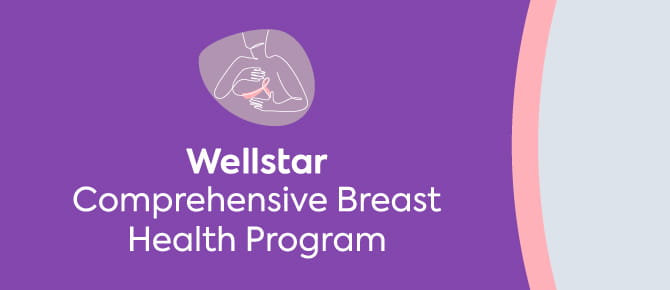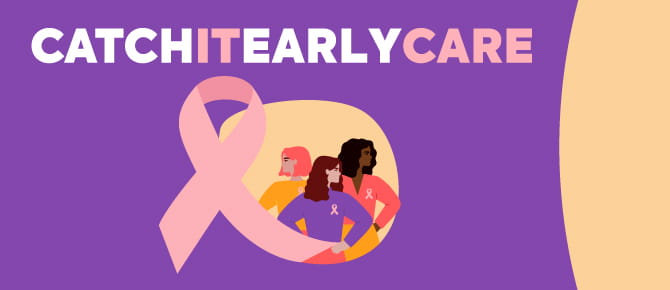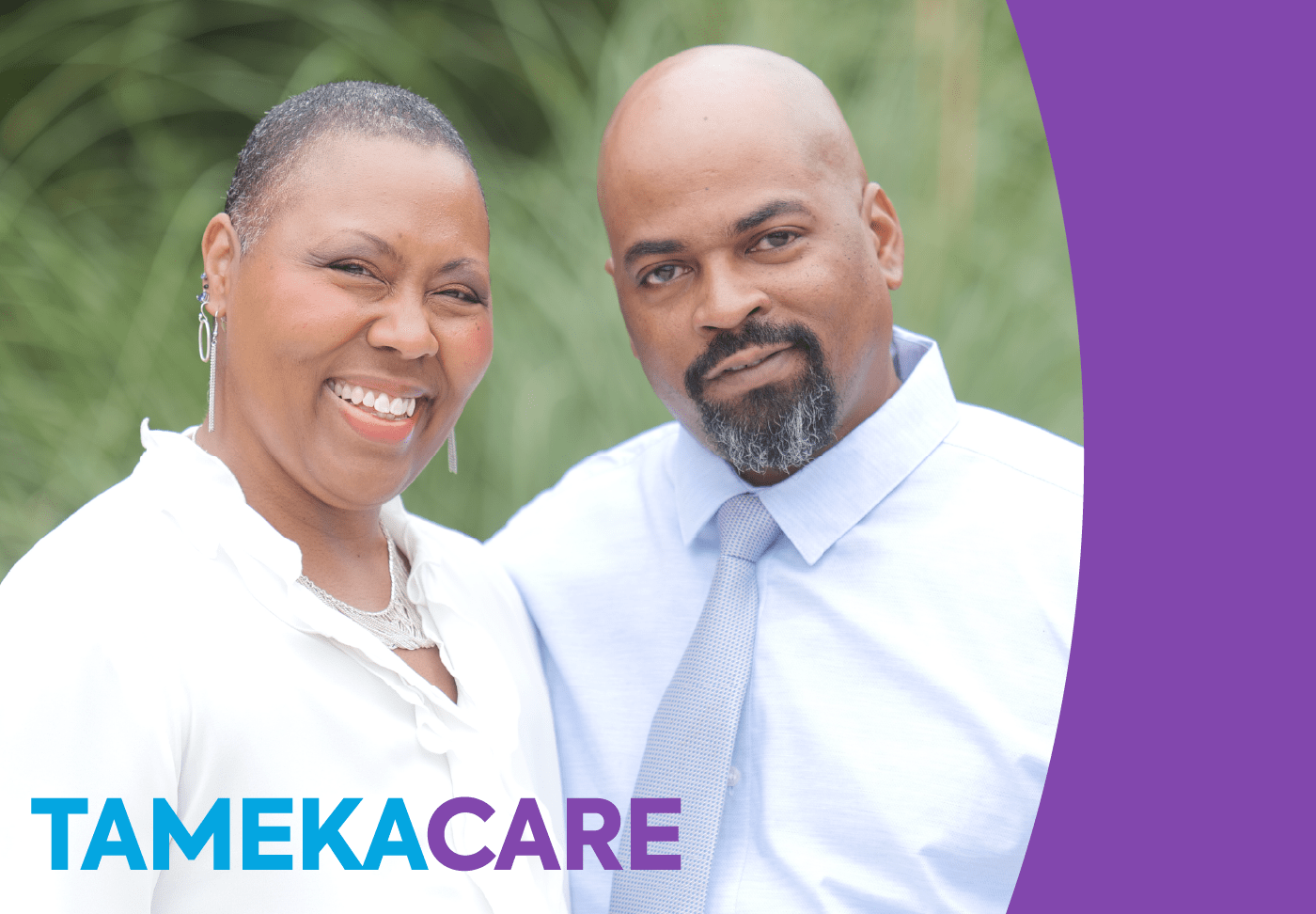
Wellstar Women's Health
Comprehensive Care for Every Life Stage
From adolescence to menopause and beyond, we offer advanced, specialty care tailored to your changing healthcare needs in every stage of life. We are committed to helping women live longer, healthier lives.
About
Women's Health at Wellstar
Wellstar women's health experts understand the conditions unique to women in all stages of life. Our comprehensive, compassionate team offers personalized care in a comfortable environment. We treat various health issues and life events, from gynecology and pregnancy to fertility and breast health. We also have extensive experience treating gynecologic cancers, as well as urogynecologic and other pelvic conditions.
Staying healthy is easier with convenient, state-of-the-art diagnostic, surgical and maternity services. Every woman should schedule an annual check-up at least once a year. As part of your well-woman exam, your provider will take your blood pressure, perform a Pap smear, pelvic exam and a breast exam. Depending on your age and medical history, your physician may recommend additional testing to catch potential health issues early.
Our Care Philosophy
Wellstar Women's Health understands that every woman is unique, and we know how to empower you to achieve optimal health. We are committed to caring for you with compassion and expertise.
Fertility
Deciding to have a family is a personal decision with many options. Based on your health, our team will help you achieve your goals and craft a plan tailored for you.
Obstetrics
Whether you need routine prenatal and delivery services or high-risk pregnancy care, we're here to ensure the health and wellness of you and your baby.
Gynecology
Healthcare needs change as you age. Get the most effective care for everything, from puberty and sexual health through menopause and hot flashes.
Breast Health
We use the latest screening technologies to monitor your breast health, which can help doctors diagnose abnormalities or breast cancers at the earliest stage.
Our Care Team
Our team partners with you to ensure you receive the comprehensive care you need and the experience you desire. For our expecting patients, we offer a variety of birth and care plans. Our gynecological team provides integrated care with other medical specialties, both medical and surgical, to determine the best possible treatment plan for you. Our team members collaborate with experts in other medical disciplines throughout Wellstar to provide you with personalized care tailored to your needs.
Comprehensive, specialized care
Medical specialists collaborate to create patient-centered care plans. Our multidisciplinary teams often include board-certified OB/Gyn’s and certified nurse-midwives who have the most advanced training and knowledge in their fields. They collaborate with specialists, including:
- Breast Surgeons
- Gyn-oncologists
- Maternal-fetal medicine specialists
- Reproductive endocrinologists
- Urogynecologists
Innovative technology, individualized treatment
You will experience the convenience and commitment of a dedicated team providing the highest quality care. We will develop a plan that is specific to you based on your needs and goals. Team members may include:
- Advanced nurse practitioners
- Genetic counselors
- Lactation and breastfeeding specialists
- Physical therapists
- Specialized imaging technicians
- Ultrasound professionals
Wellstar Foundation
As a not-for-profit, gifts to the Wellstar Foundation make it possible to provide patients with additional resources and amenities for a higher level of comfort and care. Every dollar donated supports Wellstar’s vision of delivering world-class healthcare, carried out through patient-centered programs, advancements in technology and making reliable healthcare available close to home. Your generosity also makes it possible to provide free screenings and diagnostic services to uninsured and underinsured patients every year. For more information about how to support our fight against disease, visit the Wellstar Foundation.

Helpful Links
Services
- Labor and Delivery
- Obstetrics
- Maternal-Fetal Medicine
- Reproductive Endocrinology and Infertility
- Certified Nurse Midwifery
- Expectant Mother and Family Education Classes
- Gynecology
- Urogynecology
- Gynecologic Oncology
- Preventative Care and Contraception
- Minimally Invasive Gynecologic Surgery
- Robotic Gynecologic Surgery
- Pelvic Floor Physical Therapy
- Menopause care
- Comprehensive Breast Health Program
- 3D Mammography
- Digital Mammography
- Breast MRI
- Breast Biopsy
- Breast Surgery
- Breast Reconstruction
- Early Detection
- Genetic Counseling


Think PINK: Raise Your
Breast Cancer IQ
Wellstar oncologist and breast cancer specialist
Dr. Laura Pearson shares tips to help increase
breast cancer awareness throughout the year.

Breaking the News
Choose who to tell—and when—after a breast cancer diagnosis. The process of sharing your cancer journey takes courage, but self-compassion is key.
Learn more
Let’s Talk About
Mom’s Mental Health
Maternal mental health means how a mother feels in her mind and heart during pregnancy and after giving birth. It’s very important that moms—and the people around them—know the signs of a mental health concern.
Learn more
6 Weight Loss Questions Answered by Our Experts
People who want to lose weight have more options than
ever before, though deciding which one to pursue can be a
challenge. Read what two physicians have to share.

4 Questions About Gynecologic Cancer
The gynecologic oncologists at Wellstar care for women at all stages of life, treating a variety of conditions with compassion and offering advanced care options.
Learn more
8 Heart Health Facts for Moms-to-be
Being proactive about heart health can help prevent life-threatening problems for pregnant women.
Learn more
Take the Mystery Out of Menopause
At Wellstar, our compassionate women’s health team provides individualized care to help women navigate this stage of life.
Learn more
Wellstar & Gabbi Partner to Assess Cancer Risk
We’ve partnered with Gabbi to provide breast cancer risk assessments for women ages 24 to 39.
Learn more
Wellstar Expands OB-GYN Services in Spalding, Upson Counties
Griffin OB-GYN Clinic and Renew Gynecology have joined Wellstar Health System.
Learn more
Navigate Your Breast Care with Concierge Services
Our program supports you with a full team of experts dedicated to your breast health care.
Learn more
Don't forget your keys to family health
The Atlanta Business Chronicle discusses how to avoid health problems with pediatric and women's health experts.
Learn more
The Importance of Regular Mammograms
Wellstar uses state-of-the-art imaging technology to help identify cancer sooner, so we can treat it faster. Getting a screening mammogram can save your life, so don’t delay.
Learn more
A Candid Talk About Your Breasts
A panel of women’s health experts discuss the latest on breast self-exams, breast cancer screenings and what you should be doing to be your healthiest.
Get the scoopLocations
Suite 220
Marietta, GA 30060
Suite 260
Hiram, GA 30141
Suite 150
Woodstock, GA 30189
Suite G
Alpharetta, GA 30004
Suite 200
LaGrange, GA 30240
Suite 100
Lithia Springs, GA 30122
Suite 9A
Austell, GA 30106
Suite 206
Marietta, GA 30062
Suite 301
Acworth, GA 30101
Suite 304
Holly Springs, GA 30114
Suite 300
Marietta, GA 30060
Suite 500
Marietta, GA 30060
Suite A210
Douglasville, GA 30134
Suite 1320
Acworth, GA 30101
Suite 420
Marietta, GA 30060
Suite 1400
Hiram, GA 30141
Suite 200
Austell, GA 30106
Suite 420
Marietta, GA 30060
LaGrange, GA 30240
LaGrange, GA 30240
Suite 115
Powder Springs, GA 30127
Building 2
Smyrna, GA 30082
Smyrna, GA 30082
Marietta, GA 30062
Suite 105
Marietta, GA 30066
Suite 110
Alpharetta, GA 30022
Hogansville, GA 30230
Suite 100
Acworth, GA 30101
Suite 105
Marietta, GA 30062
Norcross, GA 30071
West Point, GA 31833
Suite 120
Kennesaw, GA 30152
Smyrna, GA 30082
Suite 8A
Austell, GA 30106
Suite 105
Austell, GA 30106
Suite 400
Alpharetta, GA 30004
Marietta, GA 30060
Suite 115
Atlanta, GA 30341
Suite E
Alpharetta, GA 30009
Smyrna, GA 30082
Suite 216
Marietta, GA 30062
Atlanta, GA 30319
Decatur, GA 30034
Suite B
Douglasville, GA 30134
Suite 704
LaGrange, GA 30240
Suite B
Douglasville, GA 30134
Building B
Austell, GA 30106
Suite C
Woodstock, GA 30189
Suite E
Woodstock, GA 30189
Suite 303
Douglasville, GA 30135
Suite C
Woodstock, GA 30189
Suite 400
LaGrange, GA 30240
Medical Office Building 2nd Floor
Augusta, GA 30912
Medical Office Building 5th Floor
Augusta, GA 30912
Augusta, GA 30909
Cancer Center 1st Floor
Augusta, GA 30912
Medical Office Building 5th Floor
Augusta, GA 30912
Augusta, GA 30904
Wellstar Kennestone Women's Health Clinic
Suite 420
Marietta, GA 30060
Wellstar Hospitalist Group OB/GYN
Medical Office Building 2nd Floor
Augusta, GA 30912
Wellstar Gynecologic Oncology
Cancer Center 1st Floor
Augusta, GA 30912
Wellstar Maternal Fetal Medicine
Medical Office Building 5th Floor
Augusta, GA 30912
News
Related Articles

Highlights
Breaking the News: Choosing Who to Tell—and When—After a Breast Cancer Diagnosis
Receiving the news of breast cancer can feel overwhelming. Many find themselves struggling to process their feelings while also figuring out how to share this new reality with the people they love most.
From explaining to children and grandchildren why treatment days are difficult to deciding whether to chronicle their journey on social media, patients face uncharted territory.
Carolyn Wallace, a Wellstar oncology nurse navigator, understands these challenges and urges patients to take a deep breath before deciding how to share the news.
“Don’t feel pressured to share your diagnosis with others within a specific timeframe,” she said. “It often takes time to come to terms with a breast cancer diagnosis. Feeling overwhelmed, frightened or sad is normal.”
The process of sharing your cancer journey takes courage, but self-compassion is key. Experts encourage patients to start by confiding in those closest to them before expanding their circle as they feel comfortable.
Finding quiet moments amid the noise of advice and opinions is crucial.
“Your journey is unique,” Wallace said.
Support groups can provide connections and emotional support, while family and friends often offer much-needed love and care. For those overwhelmed by the volume of communication, free websites can help streamline updates and reduce stress.
Open and honest communication is especially important when children are involved. Kids are perceptive and may sense when something is wrong. Wallace recommends explaining the diagnosis in age-appropriate ways to build trust and prevent misunderstandings.
“Practice the conversation beforehand to ease your mind,” she said. “Reassure children that it’s OK to feel the way they do and answer their questions honestly. Let them know routines may change, but that they will still be cared for.”
Resources like age-appropriate books, camps and support groups are available to help children cope. Organizations such as Wonders & Worries, Pickles and Bright Spot Network offer free support to families preparing for these conversations.
“While breast cancer presents many challenges, open communication and leaning on loved ones can make the journey more manageable,” Wallace said. “Remember to allow yourself grace, accept support and embrace the love surrounding you.”

PeopleCare
TamekaCare
Tameka Pearson experienced the best and the worst of women’s health in a decade. When she overcame her first health challenges, a new breast cancer diagnosis tested her again. As Tameka conquered cancer with the support of her family and her Wellstar cancer care team, she only grew fiercer in her dedication to self care.
Overcoming health challenges
Look back a decade and you’ll see Tameka, a mom of three, teaching middle school students. She started out as a special education teacher, then became an English and language arts teacher. She said, “I truly loved trying to figure out how to help the students learn the curriculum in a different way and to help them cope with their disabilities.”
She was also coping with her own issues at the same time—fibroids, heavy bleeding and pain. After five years, she had a hysterectomy and went through menopause at 36 years old. It took a year to recover, and she gained 60 pounds, high blood pressure, anxiety and depression.
“The heaviest I could lift was my clothes basket,” she remembered. “When I got clearance to exercise, I changed my eating habits, my mindset and my life for the better.”
A new focus on building strength shaped her into a new woman—inside and out. She rose at 4 AM daily, lifted weights, taught students and returned home for time with her family.
A second diagnosis
In peak physical condition at 43 years, Tameka scheduled her routine annual mammogram. She got called back for a second mammogram due to dense breast tissue.
“Getting a call back after a screening mammogram means that the doctor wants to look at something more closely,” said Diane Harris, RN, a certified oncology nurse navigator at Wellstar Douglas Medical Center. “It does not mean you have cancer, but if you do, finding it earlier could save your life.”
But for Tameka, further imaging led to more tests and finally, a needle-guided biopsy. Two days later, she got a call confirming she had triple negative breast cancer. She said, “I felt like this little bump can pretty much dictate the rest of my life. When I heard the term ‘breast cancer,’ my world stopped. I cried for about two weeks straight.”

Highlights
A Candid Talk About Your Breasts
Over the years, advice about breast self-exams and breast cancer screenings has changed. So what exactly should you be doing to make sure you’re staying your healthiest? We brought together a panel of women’s health experts to discuss the best strategies to keep tabs on your breast health—and who to talk to if you’re diagnosed with breast cancer.
I do breast self-checks every month. Why do I need a mammogram too?
Dr. Paula Greaves, MD, OBGYN, Wellstar chief Women's Health officer: Unfortunately, 1 in 8 women will develop breast cancer in their lifetime, so early detection is key. We have shown over the years that the sooner we detect breast cancer, the more successfully it can be treated. Survival has increased significantly since we started finding breast cancer earlier—before there are symptoms, such as feeling a lump during a self-exam.
Mammograms are essential for early detection. It’s recommended that women start getting mammograms at age 40. However, if you have a family history of breast cancer or other risk factors, your gynecologist or primary care provider may recommend starting earlier and will help you create a personalized screening plan. There are some risk factors that women cannot change, such as genetics, but there are some ways women can lower their risk, like quitting smoking, eating a healthy diet and exercising regularly. Wellstar offers 16 mammography locations, and our patients have state-of-the-art technology on their side. We offer high-resolution breast screening, including 3D mammograms.
Women should continue not only getting annual mammograms, but also seeing their gynecologist or primary care provider for regular breast exams. Women should also be aware of physical changes within their bodies, including breast changes. Changes in the texture of the skin or a lump or pain in the breast should always be checked out by their healthcare provider.
Margie Apacible-Mancao, MSN, RN, CBCN, nurse navigator: I am so passionate about breast cancer screening—every opportunity I have I tell patients to get a screening mammogram when they’re of age. Tell someone in your circle that you’re going, then they’ll tell someone in their circle and the circle gets wider so more people will get screened.
Does it mean I have cancer if the doctor recommends a biopsy?
Dr. Sujatha Hariharan, MD, medical oncologist: When a mammogram detects an abnormality, a biopsy might be indicated. Many breast biopsies will be non-cancerous such as fibroadenomas.
If cancer is found on a breast biopsy, there are several parts of the pathology result that the care team will utilize to make a treatment plan. For example, the presence of estrogen and progesterone receptor positivity allows the potential for hormone therapy as part of the treatment plan. The HER-2 gene is also tested for and if that is present and positive, it allows for medication directed at the HER-2 gene to be given along with chemotherapy.
Sequencing of the various treatments for breast cancer—surgery, chemotherapy, radiation and hormone therapy—will be determined as a collaborative effort between the breast surgeon and medical oncologist.
If I’m diagnosed, who should I talk to next?
Margie: The anxiety of not knowing their diagnosis or what’s next is one of the hardest parts. At Wellstar, patients have access to a nurse navigator on the day they are recommended to have a biopsy. We make an appointment with the specialists as quickly as possible because just knowing that someone is helping them get to the next step and get that appointment fast dials down their stress level.
Dr. Karen Xu, MD, radiation oncologist: If you are diagnosed with breast cancer, you will need to see a breast surgeon first to discuss your surgery options—lumpectomy or mastectomy; a radiation oncologist to discuss the duration of radiation treatment and whether lymph nodes should be included in the target; and a medical oncologist about whether endocrine therapy or chemotherapy is indicated and the timing of systemic therapy. Patients who desire reconstruction after mastectomy will discuss with a plastic surgeon the type and timing of reconstruction they want.
Schedule a mammogram
Find a breast imaging location near you online or call (678) 581-5900.
We use cookies for booking and general analytics. Learn more about or internet privacy policy.

